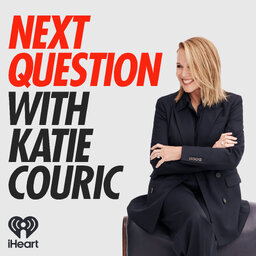Dan Taberski is the host and creator of the hit podcast Missing Richard Simmons. Dan made the six-episode series in an effort to find out what was going on with his friend Richard Simmons, who hasn't been seen in public in over three years. Missing Richard Simmons became the #1 most downloaded podcast on iTunes but now that the show is over, questions still remain. Beyond what's going on with Richard -- physically and mentally -- Dan himself has been under fire for the ethics of his project. In this ad-free bonus episode, Dan joins Katie to talk about his experience of making the podcast, what he decided to leave out of it, and his reaction to the criticism he's faced.
Learn more about your ad-choices at https://www.iheartpodcastnetwork.com
 Next Question with Katie Couric
Next Question with Katie Couric


